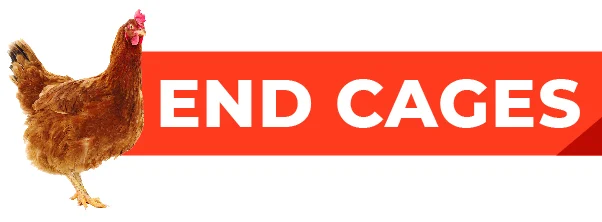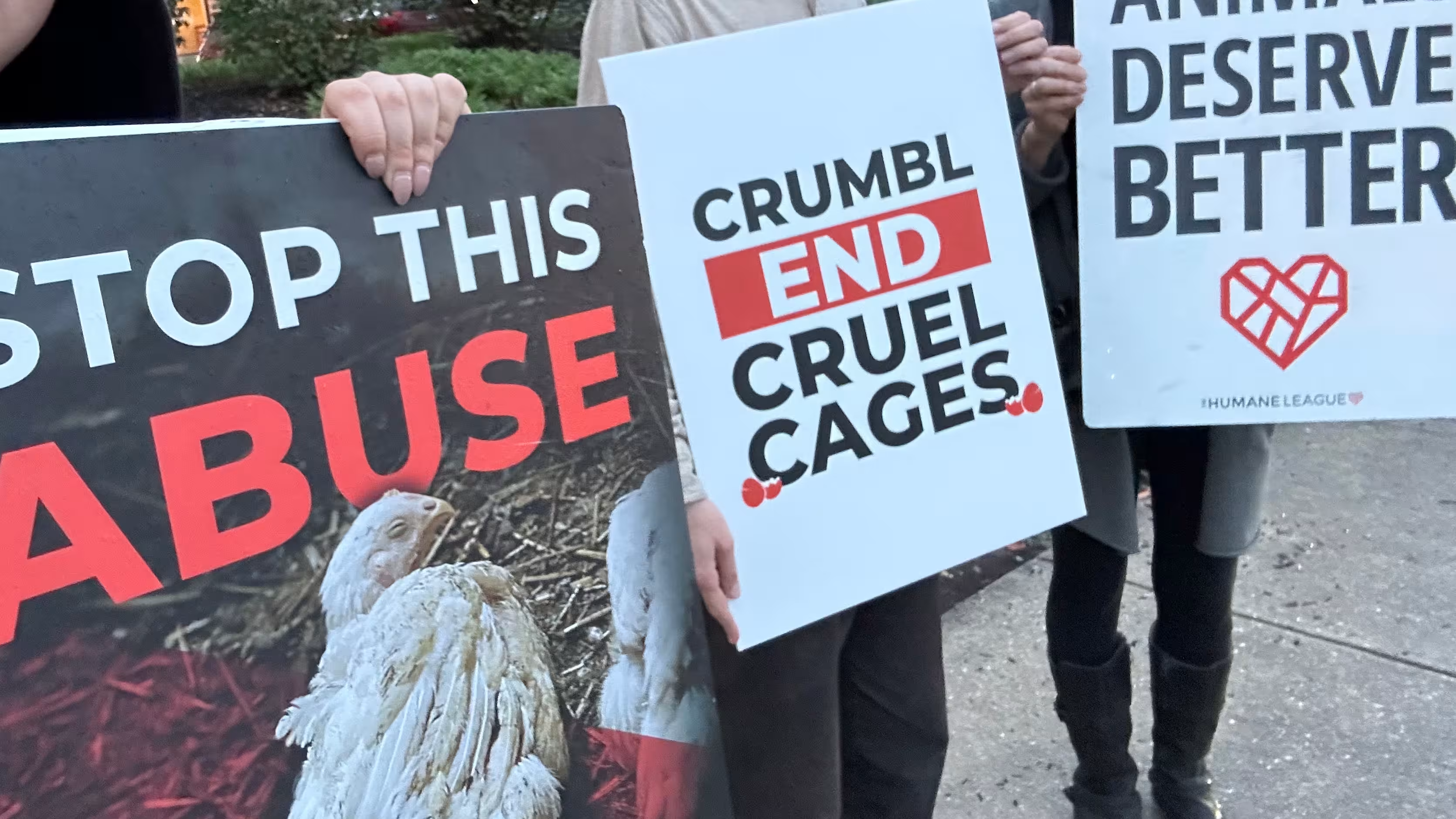




Crumbl Cookies is the fastest-growing cookie chain in the US. But its co-founders are not championing cruelty-free ingredients. Far from it.

Despite its playful branding—millennial pink everything—Crumbl is not as sweet, cute, and fun as it seems.
What is Crumbl Cookies?
Crumbl Cookies—stylized simply as "crumbl"—is a rapidly expanding dessert chain that has taken the United States by storm. Founded in 2017 by cousins Jason McGowan and Sawyer Hemsley in Logan, Utah, this cookie business has grown from a single storefront to over 1,000 locations across all 50 states, Puerto Rico, and parts of Canada in just seven years. It's also planning to expand to Australia.
The Crumbl concept was born when McGowan, a tech entrepreneur, and Hemsley, then a Utah State University student, decided to combine their skills to create the perfect chocolate chip cookie. "There was only one problem," McGowan says. "Neither of us had any formal experience in baking." Using A/B testing methods borrowed from the tech world, they honed their recipe through hundreds of iterations and taste tests.
As the Crumbl concept developed, it landed on a few signature elements:
- Oversized, shareable cookies. Each Crumbl cookie is baked onsite and big enough to serve several people, emphasizing the company's mission of "bringing friends and family together over a box of the best cookies in the world."
- Weekly rotating menu. Every week, Crumbl introduces new flavors, creating a sense of anticipation—as well as scarcity—that drives people to line up around the block for that week's selections. This is what it calls "hype cycle marketing."
- Social media mastery. The company has leveraged platforms like TikTok and Instagram to create a viral sensation, amassing over 15 million followers combined. On Instagram, it currently has 5.9 million followers. On TikTok, it has 9.4 million. Early on, the Crumbl co-founders recognized "the value of the platform instead of treating it as a third or fourth-tier social media app."
- Distinctive branding. With its "iconic" pink boxes and Apple store-like interiors, Crumbl has created an instantly recognizable and Instagrammable aesthetic.
Crumbl's rapid expansion is unprecedented in the dessert industry—QSR has called Crumbl a "category leader." By 2020, just three years after its founding, the company had already opened 100 locations. Despite challenges like the COVID-19 pandemic, Crumbl continued to grow, reaching over 400 stores by mid-2022 and surpassing 1,000 locations in 2024.
Yet with growing power comes growing responsibility—to customers, to employees, and to animals.
The company's success hasn't been without controversy. Crumbl has faced legal battles with competitors and, more seriously, labor law violations involving underage workers. Crumbl is also under fire for using ingredients produced by animals living in abusive conditions.
Animal cruelty at Crumbl?
Despite its sweet facade, Crumbl Cookies has a bitter secret: the company's use of eggs from battery-caged hens. This practice—widely condemned by consumers and illegal in numerous US states—confines hens to cramped spaces where they can't express natural behaviors, leading to significant and entirely avoidable suffering. In stark contrast to Crumbl's clean, minimalist aesthetic, these birds live in shockingly filthy conditions. You can't walk into a caged hen facility without immediately being hit by a wall of stench and air so thick it's hard to breathe.
Rather than address this cruelty head-on, as Krispy Kreme and Dairy Queen have, Crumbl is refusing to embrace forward-thinking standards for the treatment of animals. Moreover, the company continues to show a disturbing lack of transparency and responsiveness to customer concerns. Despite numerous attempts by concerned customers to contact Crumbl about their egg-sourcing practices, the company has refused to make even a commonsense commitment to go 100% cage-free and spare hens from cruelty.
It's worth noting that Crumbl's animal welfare problems compound its other ethical failings. In 2022, the company faced fines for child labor law violations, demonstrating an unacceptable pattern of disregard for ethical practices that extends from its supply chain to its workforce.
Crumbl's hypocrisy
Crumbl's stance on animal welfare stands in stark contrast to its carefully cultivated public image and the values its co-founders claim to believe in. This disconnect highlights a deep-seated hypocrisy within the company's overall ethos.
Jason McGowan, CEO and co-founder of Crumbl, has publicly stated, "At Crumbl, we've always believed that as much as we are a cookie company, we are a people company first and foremost." But his words ring hollow when his company refuses to address the concerns of thousands of customers pleading for more ethical practices.
The hypocrisy becomes even more glaring when considering the following points:
- Ignoring consumer values. While Crumbl prides itself on innovation and meeting consumer demands with its rotating menu of flavors, it blatantly ignores the increasing consumer demand for ethical sourcing and improved animal welfare standards.
- Lack of transparency. Despite building its brand on social media engagement and customer interaction, Crumbl maintains a conspicuous silence on its egg-sourcing practices, refusing to engage in dialogue about this critical issue.
- Falling behind industry standards. Many companies in the food industry have already committed to cage-free sourcing. Crumbl's refusal to do so positions it as a laggard in corporate responsibility, contradicting its image as a forward-thinking brand.
- Misalignment with stated values. Crumbl's mission statement emphasizes bringing people together, yet its practices contribute to the suffering of sentient beings and alienate a large and growing community of ethically-minded consumers.
Jason McGowan and Sawyer Hemsley have the power and ethical responsibility to end the animal abuse in Crumbl's supply chain. Their inaction on this issue, despite having the authority to make changes, underscores a profound disconnect between Crumbl's public persona and its behind-the-scenes practices.
In an era where consumers increasingly demand ethical practices from the brands they support, Crumbl's hypocrisy on animal welfare issues threatens to tarnish its carefully crafted image. The question remains: will Crumbl align its practices with its professed values, or will it continue to prioritize profits over principles?






